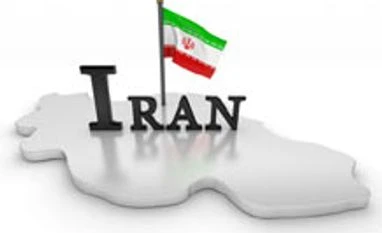Iran's supreme leader Ayatollah Ali Khamenei has restated his country's red lines for a nuclear deal in a dramatic intervention during a meeting with President Hassan Rouhani and top officials.
Banking and other economic sanctions imposed by the UN and the United States must be lifted "immediately" if a nuclear deal is signed, he said yesterday, according to a transcript posted on his official website.
Khamenei also said Iran would not allow inspections at military sites or "unconventional inspections" of other facilities, in remarks that follow demands from Britain and France that such access is a non-negotiable part of a verified deal.
"Unlike the insistence from the Americans, we do not accept long-term limitations of 10, 12 years, and we told them how many years (of) limitations we are ready to accept," said Khamenei, who has the final word for Iran on whether a deal is acceptable.
Under the preliminary framework, Iran and the P5+1 powers said Iran's enrichment of uranium would be limited for 10 years and be conducted exclusively at its Natanz facility.
According to the transcript, Khamenei also said that Iran must be allowed to continue its nuclear research and development under any inspection regime and inspection period.
The supreme leader's intervention came after Iran's parliament and Rouhani's government clashed on a bill passed by MPs which, if adopted into law, would give it the power to ratify a deal or, if it so wished, to reject it as unsatisfactory.
In a signal of the significance of yesterday's meeting, it was attended not only by Rouhani but also by his predecessor, Mahmoud Ahmadinejad, the hardline conservative president under whom Iran's nuclear programme became a flashpoint issue for the West.
Banking and other economic sanctions imposed by the UN and the United States must be lifted "immediately" if a nuclear deal is signed, he said yesterday, according to a transcript posted on his official website.
Khamenei also said Iran would not allow inspections at military sites or "unconventional inspections" of other facilities, in remarks that follow demands from Britain and France that such access is a non-negotiable part of a verified deal.
More From This Section
Khamenei also voiced distrust of UN inspectors who are expected to monitor Iran's nuclear activities and threw doubt on the duration of the framework agreement struck with world powers on April 2.
"Unlike the insistence from the Americans, we do not accept long-term limitations of 10, 12 years, and we told them how many years (of) limitations we are ready to accept," said Khamenei, who has the final word for Iran on whether a deal is acceptable.
Under the preliminary framework, Iran and the P5+1 powers said Iran's enrichment of uranium would be limited for 10 years and be conducted exclusively at its Natanz facility.
According to the transcript, Khamenei also said that Iran must be allowed to continue its nuclear research and development under any inspection regime and inspection period.
The supreme leader's intervention came after Iran's parliament and Rouhani's government clashed on a bill passed by MPs which, if adopted into law, would give it the power to ratify a deal or, if it so wished, to reject it as unsatisfactory.
In a signal of the significance of yesterday's meeting, it was attended not only by Rouhani but also by his predecessor, Mahmoud Ahmadinejad, the hardline conservative president under whom Iran's nuclear programme became a flashpoint issue for the West.
)